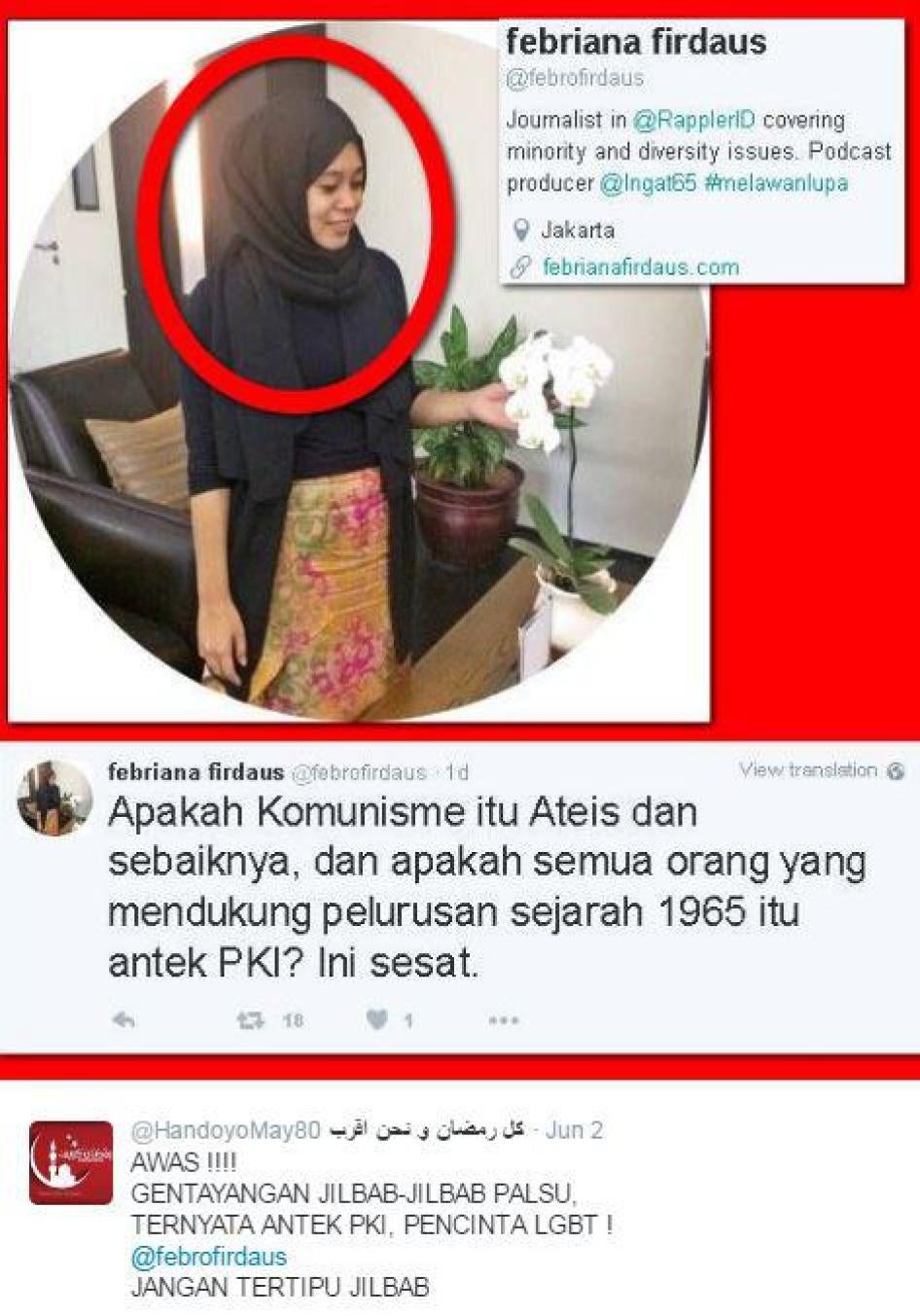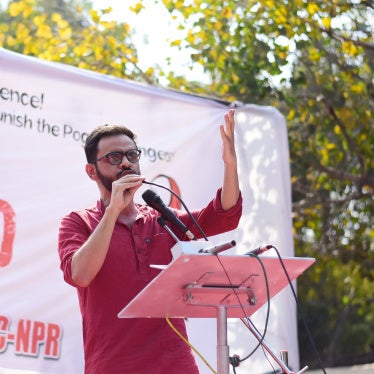“Pro-Communist.”
“LGBT Lover.”
These were some of the epithets – among a flood of threats of violence transmitted via social media – that have sent Indonesian journalist Febriana Firdaus into hiding for the past week.
The threats followed her expulsion from a June 2 meeting of militant Islamists and former senior military officials, all of whom fiercely oppose Indonesia’s tentative steps toward accountability for the 1965-66 “anti-communist” massacres. In October 1965, the Indonesian government gave free rein to Indonesian soldiers and local militias to kill anyone they considered to be a “communist.” Over the next few months at least 500,000 people were killed. The victims included members of the Communist Party of Indonesia, ethnic Chinese, as well as trade unionists, teachers, civil society activists, and leftist artists. In the half century since the killings, successive Indonesian governments have justified the massacres as a necessary defense against the Communist Party.
Within hours of Firdaus’s expulsion, the Twitter account of the Islamic Defenders Front (FPI), a militant Islamist group that had representatives at the meeting, accused Rappler, a popular online news forum, and Firdaus of being “pro-communist.” Other social media users then accused Rappler of being “pro-LGBT” (lesbian, gay, bisexual and transgender). Over the coming hours, numerous Twitter users responded to those accusations by targeting Firdaus with “violent threats,” prompting her to go into hiding.
Firdaus has good reason to fear the FPI and its supporters. The FPI’s use of terms such as “pro-communist” – akin to “traitor” in Indonesia – carries an implicit threat of violence. And the group has a well-documented penchant for thuggery, often using machetes and spears, and last year declared its readiness for “open war” against perceived communists. The FPI and kindred groups have been implicated in harassment, intimidation, threats and mob violence against religious minorities, including several Protestant groups, Shia, and the Ahmadiyah. The group is also notorious for attacking nightclubs, bars and other purveyors of alcoholic drinks, particularly during the annual Muslim fasting month of Ramadan.
The hostile identification of Rappler and Firdaus as “pro-LGBT” echoes the rising intolerance against the country’s LGBT population. Since January, numerous government officials have demeaned and threatened Indonesia’s LGBT population. Mainstream religious groups and nongovernmental organizations, including the Indonesian Psychiatric Association, have asserted that LGBT people are “diseased” or an affront to the “dignity of Indonesia.”
Indonesia’s President Joko “Jokowi” Widodo should make clear to the FPI and others that his government won’t tolerate such threats to media freedom. Until he does, reporters such as Firdaus will be at risk for merely doing their jobs.









